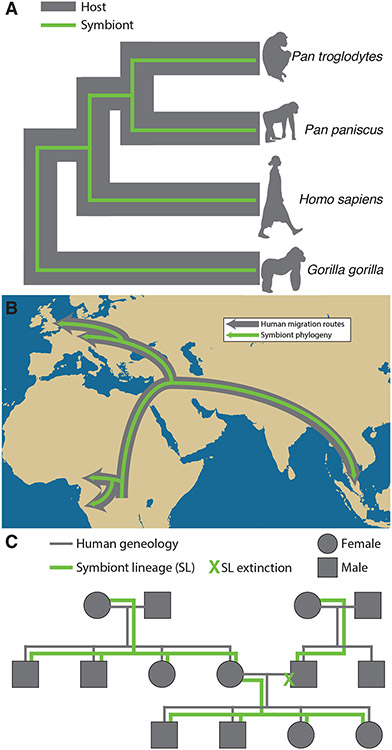Fig. 1. Co-diversification at three levels in humans and African apes.
(A) Studies of protein-coding marker genes and metagenome assembled genomes (MAGs) have provided support for co-diversification between certain gut bacterial symbionts and human and African ape hosts (Moeller et al., 2016; Sanders et al., 2023). However, surveys of captive chimpanzees have found conflicting evidence for co-diversification and host specificity in the gut microbiota (Nishida and Ochman, 2021; Houtz et al., 2021). (B) A recent MAG-based study of human gut microbiota found evidence that multiple lineages of bacterial symbionts have co-diversified with human populations (Suzuki et al., 2022), mirroring previous results observed for Helicobacter pylori (Falush et al., 2003). (C) Suzuki et al. also detected evidence consistent with co-diversification of individual symbionts and human families via vertical transmission through maternal lineages (Suzuki et al., 2022), although these signals are difficult to separate from geographic effects (Good, 2022). The hypothesis that symbiont lineages co-diversify with maternal lineages generates specific predictions about the structure of symbiont phylogenies which have not yet been tested, including the prediction that male lineages may represent evolutionary ‘dead ends’.

